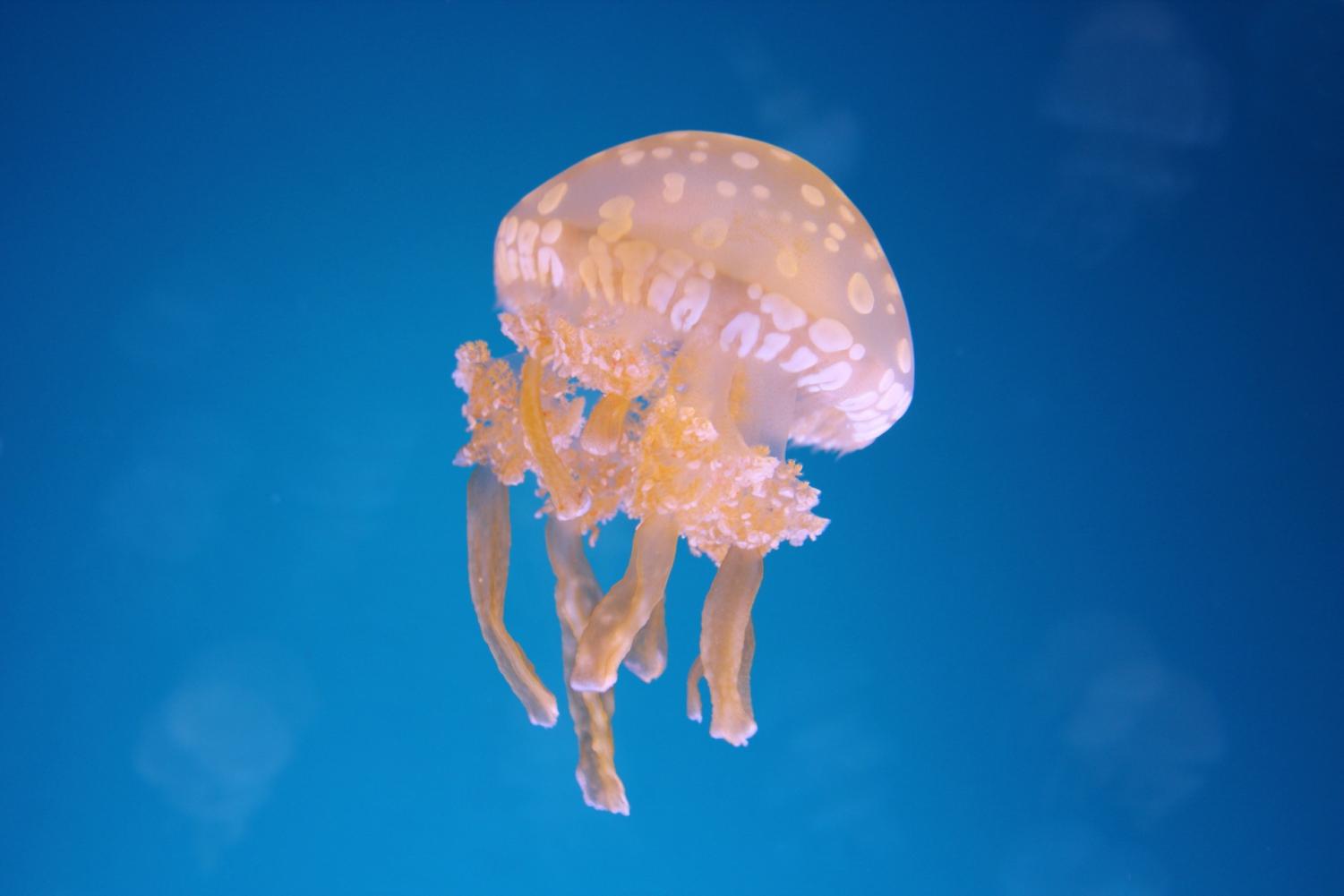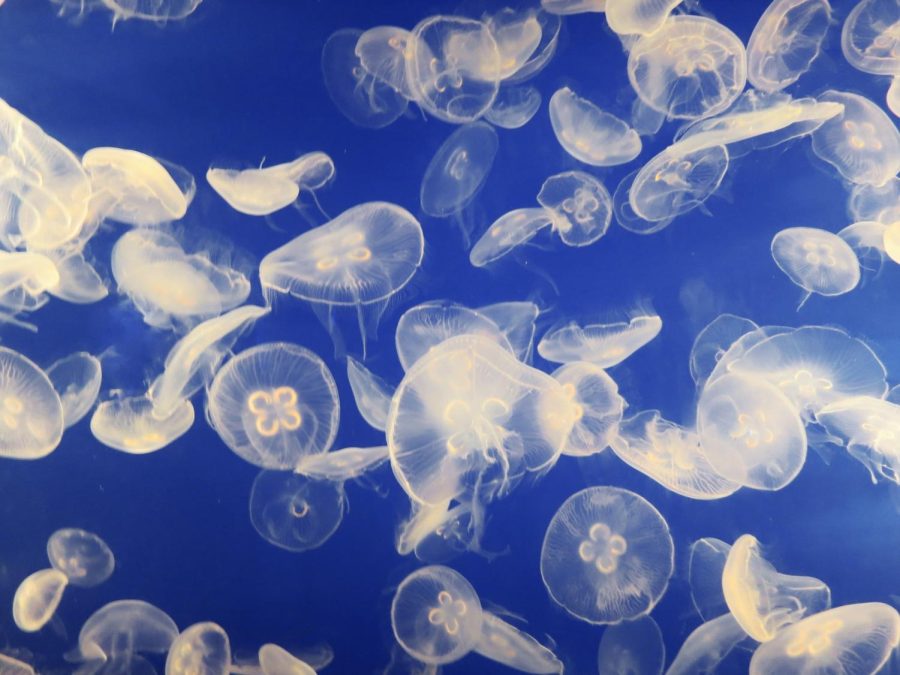On the majesty of jellyfish
Finding God, meaning and life in the ancient depths of the sea
Despite their lack of brain, jellyfish can still process sensory information.
April 10, 2023
Some people find their Higher Power hidden in the trees or standing in the pulpit. I found God in an aquarium. More specifically, in the microscopic space between my fingertips and the top of a moon jellyfish.
Jellyfish (or jellies, as they are more accurately called) are some of the oldest creatures on the planet — predating dinosaurs by a few hundred million years. Several have been found to be essentially immortal, capable of reverting back to previous biological states.
Jellies belong to the Cnidarian phylum, which comes from the Greek word “cnidos,” meaning “stinging nettle.” Some other animals in this phylum include sea anemones and corals. Essentially, they are radially-symmetrical marine invertebrates with stinging capabilities and a digestive cavity that opens to the outside via a single opening.
Though they are animals, jellies behave more similarly to plants — at least on a cognitive level. By that I mean they don’t have cognitive thought… like, at all. Jellyfish and all other cnidarians have no brain (oh, how lucky they are) but rather a web of nerves extending out to each part of their bodies.
You would think that, with such a primitive nervous system, these creatures would be rather susceptible to predators — or at least incapable of survival beyond luck or some divine force. But this is not true.

Joram Piatigorsky, a molecular biologist turned novelist, found a new sense of wonder in these creatures, similar to me. More specifically, he found this wonder in their eyes.
According to Piatigorsky, several species of jellyfish have specialized structures called rhopalia — upon which sit multiple eyes, giving jellies a 360-degree view of their surroundings. Additionally, these jellies have sets of simple eyes equipped with light-sensitive photoreceptors.
Now you may be thinking: What use are eyes to an animal that cannot process images in its mind? And to that, I answer: to help them determine their orientation and, if near another animal, determine whether it is predator or prey.
You may find yourself questioning again, “Well, if a jellyfish has no brain, then how can they really ‘determine’ anything?” Well, there are specialized cells within a jellyfish’s body called nematocysts that have the capacity to activate a response based on whether an animal of prey or a predator is nearby.
And if you’re anything like me, this still won’t make any sense because WITH WHAT BRAIN ARE THEY MAKING SENSE OF THIS INFORMATION?!
And the answer is, well, none! There is no brain! No thoughts, and yet a calculated response. No “instinct” per se, and yet copious amounts of documented instinctual action!
And isn’t that something beautiful? I mean, really? Isn’t there something so wonderful in the sheer lack of logic? I’m sure you could go down a rabbit hole for hours (I sure have) trying to figure all this out. But the wonderful thing about it is that you don’t have to do that.
As brainless as they might be, there is something special going on inside obscenely old sacs of roughly 95% water. Where there may not be thoughts, there certainly is a soul.
Many cultures recognize the importance of honoring our elders in all of their forms — whether it be a tree, or another person or an animal. The way I see it, these creatures have seen much more of the world than I have, and it would be wise of me to look to them for guidance.
We were all created perfectly already — utterly in tune with the world around us and made to fit into our lives like a puzzle piece
When I don’t know what to do or when I start to feel alone, I remember how these seemingly simple creatures are really so complex when you choose to understand them. And then I am once again reminded that we were all created perfectly already — utterly in tune with the world around us and made to fit into our lives like a puzzle piece. None of us is here by accident, and if we choose to understand one another, we will begin to see how delicately and splendidly crafted each one of us is.
I will leave you with a quote from Piatigorsky’s novel “Jellyfish Have Eyes.” May we all, like the main character Ricardo, continue to be dreamers of the highest order. Now go forth with your day, and find a jellyfish to pet (be sure to invite me).
“If you had been there and seen the jellyfish, Lillian. They have eyes and minds. We have so much to learn from them.”
“You’re a dreamer, Ricardo, a dreamer.”
























Blake • Apr 18, 2023 at 8:06 pm
Amazing
Throughout reading this article you can’t help but love the fun writing style of the writer. While being seemingly entertaining, silly, and most notably, a whimsical article, she (the writer) keeps the audience entertained and educating throughout the entire time.
An illuminating article just as it’s topic.